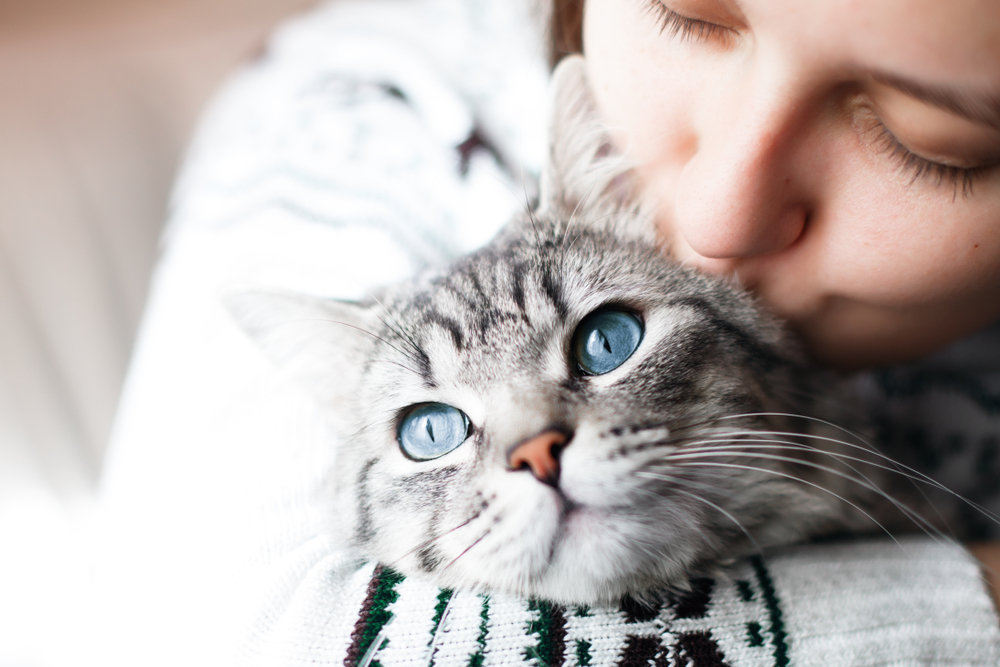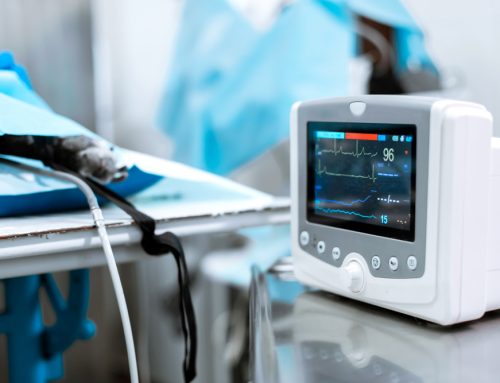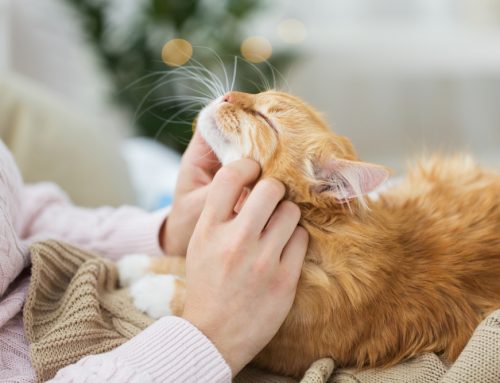Associated Veterinary Medical Center has been accredited by the American Animal Hospital Association (AAHA) since 1981. We are proud of this accomplishment: AAHA accreditation not only illustrates our commitment to high-quality medicine but also shows that your pet and her health are our top priorities. We hold our practice and employees to the highest veterinary medicine standards to ensure your pet’s experience at our hospital is the best possible. Your pet deserves excellent health care, and we strive for nothing less.
In May, AAHA representatives will visit our hospital for accreditation renewal. Preparation for an AAHA evaluation is rigorous and time-consuming, but we are confident we will exceed the evaluation standards.
What is AAHA?
AAHA is the only organization that accredits veterinary practices in the United States and Canada. Accreditation is not mandatory—only hospitals that adhere to the highest standards pursue accreditation voluntarily. Many pet owners assume their veterinary hospital is accredited, but only 12% to 15% of U.S. and Canadian practices hold AAHA accreditation. To become accredited, a facility must meet an extensive list of approximately 900 standards of veterinary excellence. Following initial accreditation and the first reaccreditation evaluation one year later, AAHA representatives perform a comprehensive onsite evaluation every three years to determine whether the facility continues to meet the standards.
Standards of accreditation
AAHA evaluates practices based on the association’s established standards, which are continually reviewed and updated to keep accredited practices at the forefront of veterinary medicine. Hospitals must meet standards in the following areas:
- Anesthesiology
- Contagious disease control
- Cleanliness
- Dental care
- Emergency and critical care services
- Pain management
- Patient care
- Surgery
- Medical records
- Pharmacy
- Laboratory equipment and procedures
- Diagnostic imaging
- Continuing education
Below are some details about a few standards of accreditation we feel are particularly important.
Dental care

Dental disease, which is the most common health problem that affects pets, will begin to develop by the time your pet is three years old if she doesn’t receive regular dental care. AAHA recognizes the importance of excellent dental care, and requires accredited hospitals to provide services under the following criteria:
- All dental procedures are performed under anesthesia, with an endotracheal tube in place to protect the patient’s airway.
- Only trained team members perform dental procedures, and only a veterinarian performs extractions.
- A complete dental record is made for each patient.
- All dental instruments are sterilized before use on each patient.
- Pain is assessed for every dental patient, and appropriate pain prevention and management is provided.
- Dental X-rays are recommended for all dental procedures.
Anesthesia
When your pet is placed under anesthesia, only the safest practices are acceptable. To maintain AAHA accreditation, veterinary practices must follow specific standards, including:
- Only credentialed veterinary technicians, under the veterinarian’s supervision, induce and maintain anesthesia.
- Emergency drugs and equipment are maintained and readily available in case of an emergency.
- An individualized emergency care plan, including pre-calculated emergency drug doses, is designed for every anesthesia patient.
- Every anesthetic patient is given intravenous fluids administered through a catheter throughout the procedure.
- An endotracheal tube is placed in every patient prior to anesthesia.
- A trained team member constantly monitors every sedated or anesthetized patient’s condition.
- Thorough anesthetic monitoring is performed using top-of-the-line equipment, such as an electronic respiratory monitor, pulse oximeter, blood pressure monitor, continuous ECG, esophageal stethoscope, and a capnograph.
- A complete anesthetic record is maintained for each patient.
- A standard resuscitation procedure is developed in case of respiratory or cardiac arrest, and all team members receive annual cardiopulmonary resuscitation (CPR) training.
Surgery
AAHA ensures every surgical procedure is performed to the highest standards, using the safest equipment and practices available.
- Only licensed veterinarians perform surgeries, and surgical assistants are credentialed veterinary technicians, veterinarians, or veterinary students.
- Written protocols are in place and followed for the preparation of surgical patients, preparation of surgeons and surgical assistants, and the sterilization of instruments and supplies.
- Sterilization equipment is tested routinely to ensure microorganisms on surgical instruments and supplies are killed.
- A mechanical ventilator is required to maintain breathing.
- Every practice must have equipment to control blood loss, such as electrocautery or a surgical laser.
- Safe and effective heating devices approved for small animals are used to prevent hypothermia.
Pain management
Your pet can’t tell us she’s in pain, so veterinary professionals must be trained to recognize pain and provide appropriate pain management. AAHA-accredited practices take every measure to keep your pet pain-free, such as:
- Performing a pain assessment for every patient, regardless of the presenting complaint, using a standardized scale or scoring system
- Training team members to recognize signs of pain, so they can work closely with veterinarians to provide every patient appropriate pain management
- Developing an individualized pain management plan for each patient
- Providing pain management for every surgery patient
- Providing pain management before a painful event, such as surgery, to prevent pain before it begins
- Frequently re-evaluating pain in hospitalized patients and those with persistent or recurring conditions
- Providing alternative pain-control methods, such as acupuncture, massage, or laser therapy
If you have questions about AAHA accreditation, contact our hospital. We’d be happy to tell you more about its importance for you and your pet.






